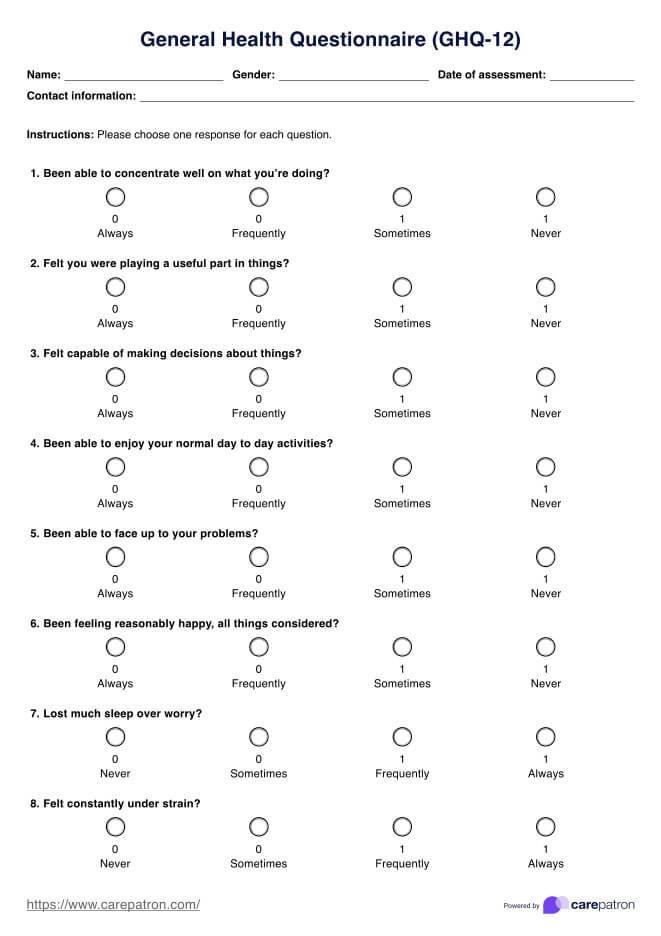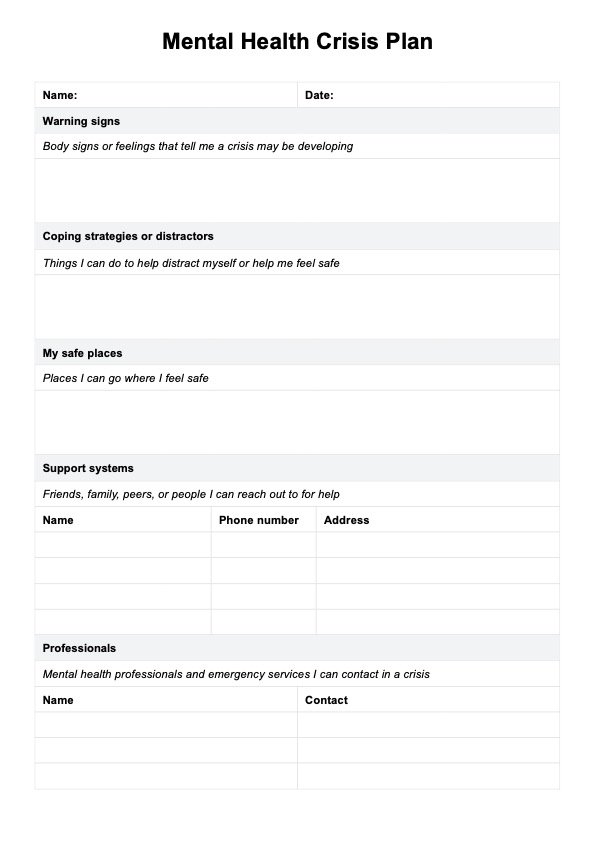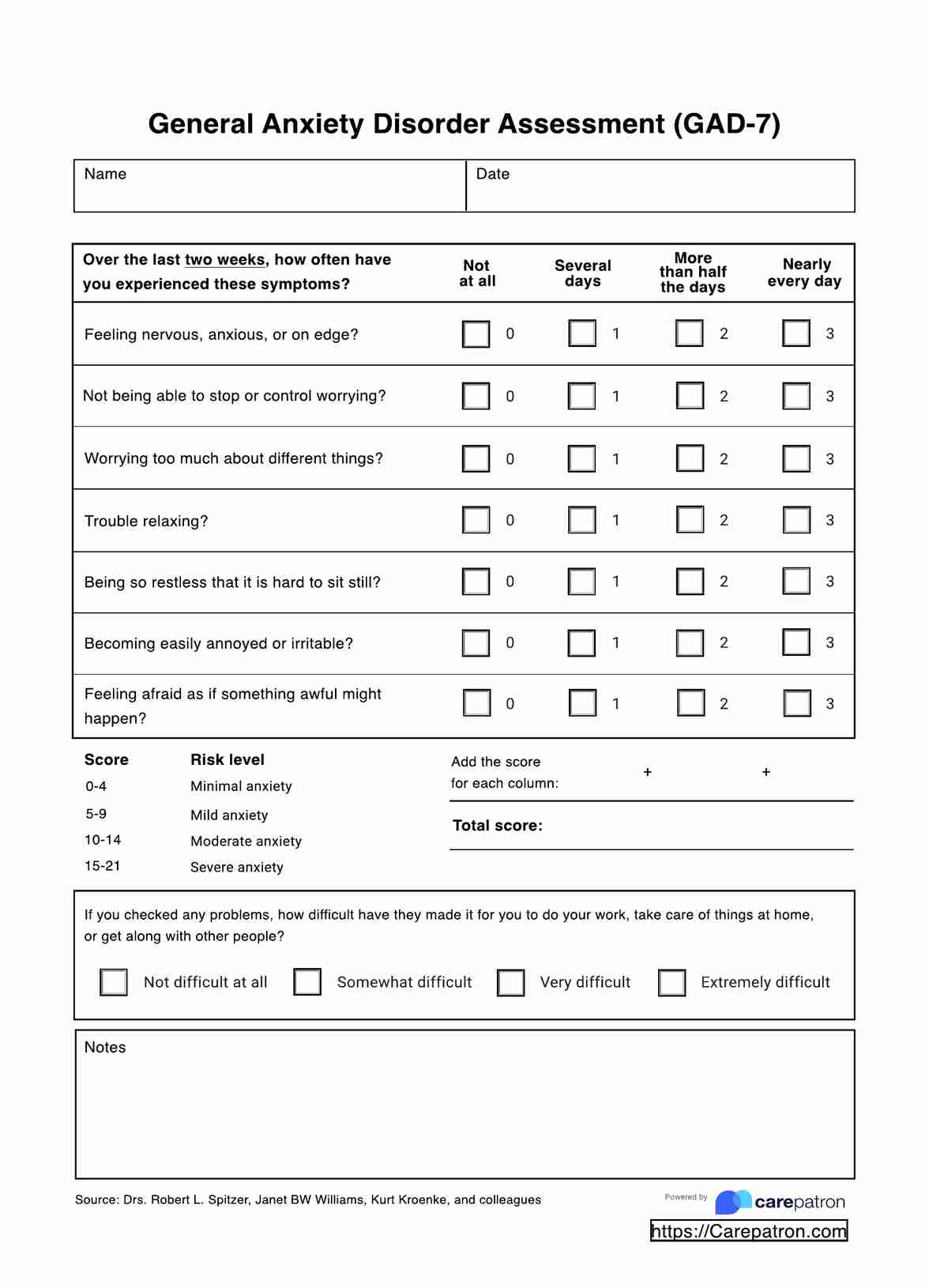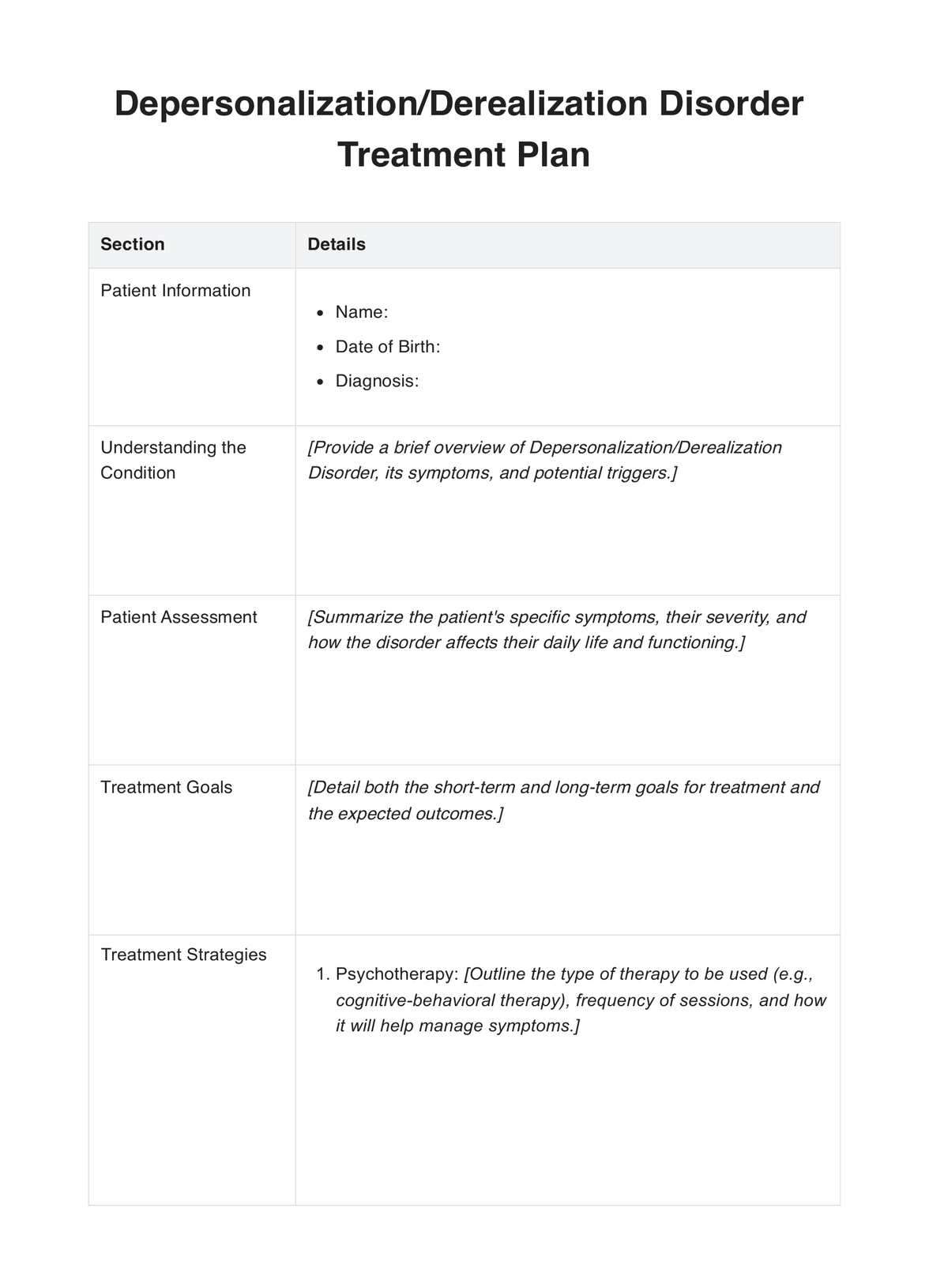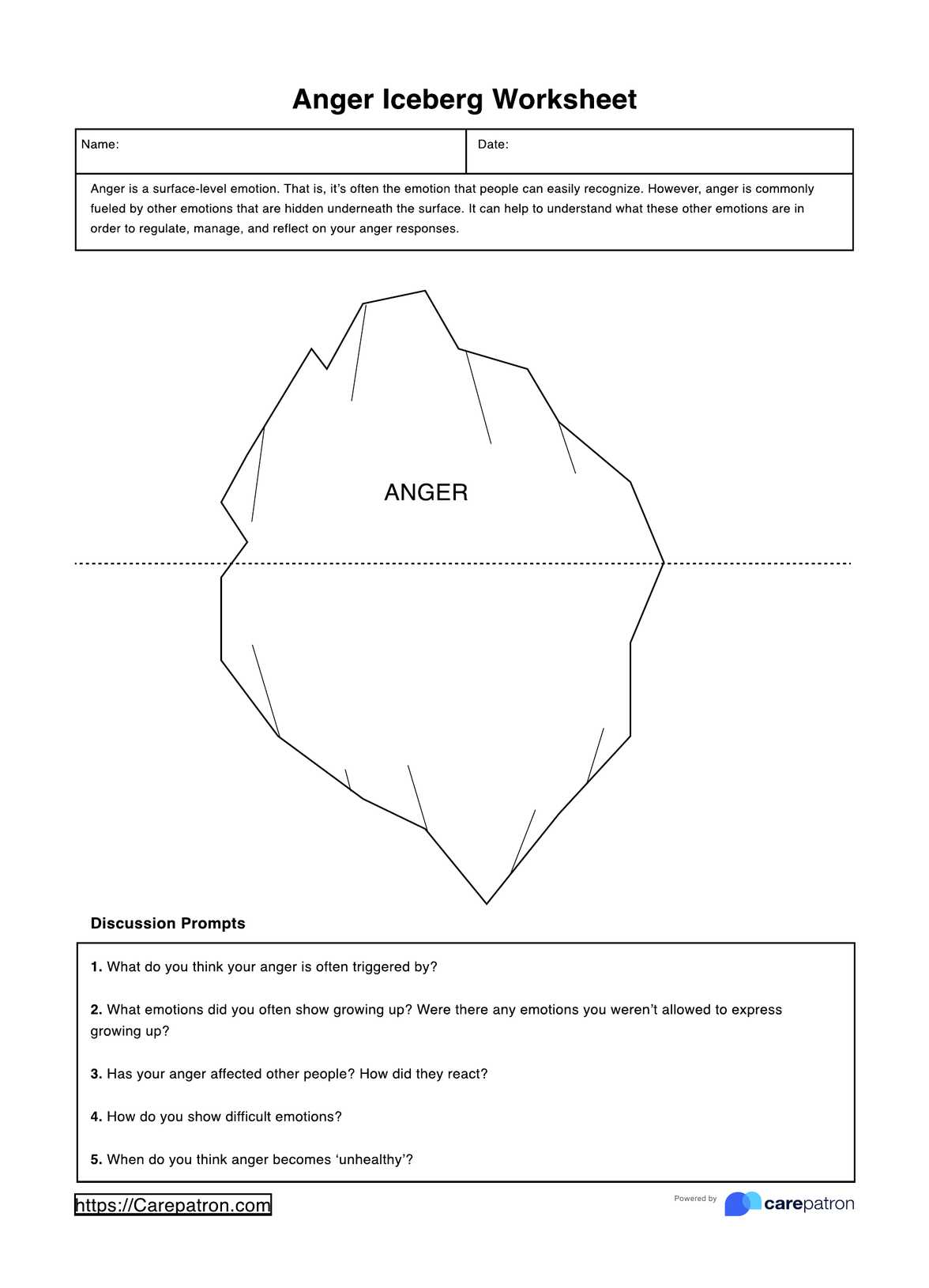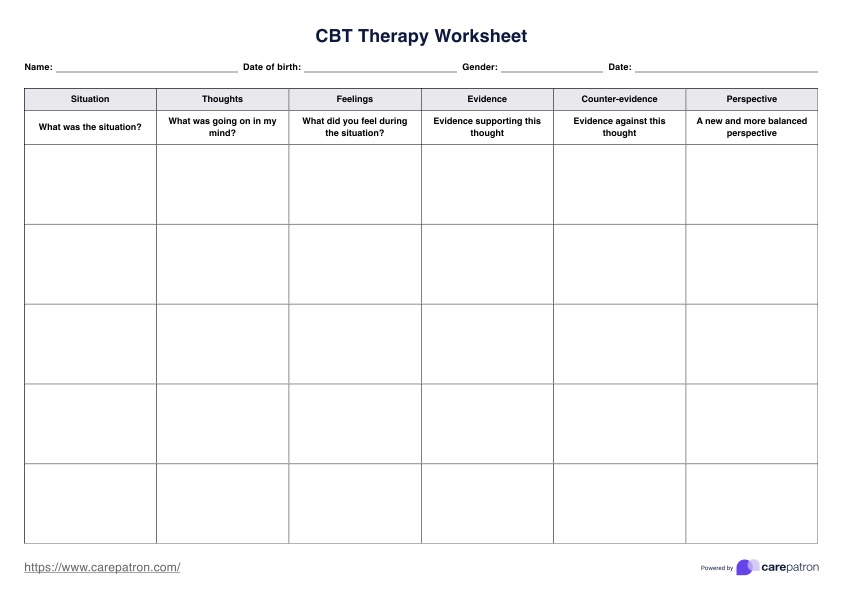Social Emotional Learning Activities PDF
Enhance social-emotional learning with our activities PDF, fostering emotional intelligence and interpersonal skills.


An introduction to social-emotional learning
Social-emotional learning (SEL) is a comprehensive approach to education that focuses on developing fundamental skills essential for students' social and emotional well-being. SEL activities provide a structured framework for students to enhance their self-awareness, emotional skills, and social interactions. These activities cater to various age groups, including middle school students and young adults, fostering a positive learning environment throughout the school year.
Incorporating SEL into the curriculum invites students to reflect on their emotions, express themselves positively, and cultivate positive relationships with others. Students learn valuable life skills beyond academic achievements by integrating SEL skills, such as responsible decision-making and emotional awareness, into daily classroom activities like morning meetings.
SEL activities often involve journal writing, daily emotional check-ins, and mindfulness exercises, including deep breathing techniques. These activities promote self-management, regulate emotions, and create a positive climate within the school community. SEL emphasizes the importance of social skills, kindness challenges, and relationship-building, all aimed at fostering a healthy emotional climate.
Teachers, parents, and counselors can utilize free resources, including printable formats and Google Slides presentations, to engage students in SEL activities. Incorporating SEL into the classroom provides students with a supportive and engaging environment, contributing to their overall emotional wellness. SEL is a powerful tool for teaching essential life skills, such as empathy, positive thinking, and the ability to identify and manage emotions effectively.
Social Emotional Learning Activities PDF Template
Social Emotional Learning Activities PDF Example
The benefits of social-emotional learning
- Enhanced emotional intelligence: SEL helps individuals develop emotional intelligence by fostering self-awareness, self-regulation, and empathy. Through activities that focus on recognizing and understanding emotions, individuals can better manage and navigate their feelings as well as understand the emotions of others.
- Improved interpersonal skills: SEL emphasizes developing strong interpersonal skills, including effective communication, conflict resolution, and collaboration. These skills are crucial for building positive relationships, both in academic and personal settings.
- Positive behavior and decision-making: SEL programs promote responsible decision-making and encourage individuals to think critically about their actions. SEL helps reduce negative behaviors and promotes a positive school or work culture by instilling a sense of responsibility and ethical decision-making.
- Academic success: Students participating in SEL activities often demonstrate improved academic performance. SEL provides a foundation for effective learning by fostering motivation, perseverance, and a growth mindset, which contribute to increased engagement and achievement in academic tasks.
- Reduced emotional and behavioral issues: SEL programs have been linked to a reduction in emotional and behavioral problems, including stress, anxiety, and disruptive behavior. By equipping individuals with coping strategies and emotional regulation skills, SEL helps create a supportive and conducive environment for learning and growth.
- Enhanced social skills: SEL activities focus on developing various social skills, including teamwork, communication, and conflict resolution. These skills are essential for navigating social situations, building positive connections, and contributing to a cooperative community.
- Increased empathy and compassion: SEL emphasizes the importance of understanding and empathizing with others. By nurturing empathy, individuals develop a heightened awareness of diverse perspectives and a greater sense of compassion, fostering a more inclusive and supportive community.
- Preparation for life challenges: SEL equips individuals with the skills to navigate life's challenges successfully. By promoting resilience, problem-solving, and adaptability, SEL prepares individuals to face setbacks, setbacks, and changes with a positive and proactive mindset.
How do social-emotional learning activities work?
Social Emotional Learning (SEL) activities are intentional and structured interventions to foster emotional intelligence and interpersonal skills. These activities provide individuals with opportunities to explore and understand their own emotions, recognize the feelings of others, and develop essential social skills. The process often begins with self-awareness exercises, prompting participants to identify and reflect on their emotions, triggers, and responses. This foundational step helps individuals build a solid understanding of their emotional landscape.
Following self-awareness, SEL activities incorporate skill-building components, offering exercises and scenarios focusing on key competencies such as self-regulation, empathy, communication, and conflict resolution. Participants engage in interactive experiences, role-playing, discussions, and other purposeful tasks designed to develop and reinforce these skills actively. Through guided activities, individuals learn how to navigate social interactions, express emotions constructively, and cultivate positive relationships. Social-emotional learning activities are carefully crafted to be adaptable across age groups, ensuring the content is relevant and accessible to various developmental stages. By emphasizing reflection and encouraging the application of learned skills in real-life situations, SEL activities contribute to the holistic development of individuals, promoting emotional well-being and positive social connections.
Other useful resources for social-emotional learning
Gratitude journaling activity
Gratitude journaling is a powerful and reflective activity that encourages individuals to cultivate a positive mindset by acknowledging and appreciating the blessings in their lives. This practice involves regularly recording moments, experiences, or people for which one feels grateful. Expressing gratitude through journaling has been linked to various mental health benefits, including increased happiness, reduced stress, and improved overall well-being.
In a gratitude journaling activity, participants are prompted to set aside dedicated time each day or week to reflect on positive aspects of their lives. They may jot down things they are thankful for, whether big or small, fostering a heightened awareness of the positive elements amidst life's challenges. This activity serves as a personal reflection tool and encourages a shift in focus from what might be lacking to what is present and meaningful.
Self-awareness worksheets
Self-awareness worksheets are valuable tools designed to help individuals explore and deepen their understanding of themselves. These worksheets often contain various reflective exercises and prompts encouraging introspection and self-analysis. The goal is to enhance awareness of thoughts, emotions, behaviors, and overall identity. Through these activities, individuals can gain insights into their strengths, weaknesses, values, and goals.
The content of self-awareness worksheets may include exercises such as journaling about personal experiences, identifying emotions in different situations, and reflecting on behavior patterns. Some worksheets may incorporate tools like self-assessment quizzes or guided questions that prompt users to explore their beliefs, preferences, and areas for growth. Completing self-awareness worksheets fosters mindfulness and a deeper connection with oneself, promoting personal development and a greater sense of authenticity.
Social-emotional IEP goals
Social Emotional Individualized Education Program (IEP) goals are specifically tailored objectives designed to address the social and emotional needs of students with disabilities. These goals are an integral part of the IEP, a legal document outlining the specialized educational services and support students with disabilities receive. Social-emotional goals in an IEP typically focus on developing skills related to self-awareness, self-regulation, interpersonal relationships, and responsible decision-making.
For example, a Social Emotional IEP goal might aim to improve a student's ability to identify and express their emotions appropriately, or it could target the development of effective coping strategies for managing stress or anxiety. The goals are designed to be measurable and achievable within a specified timeframe, allowing educators and other professionals to assess progress and adjust interventions accordingly.
Goal setting and career planning worksheet
The Goal Setting and Career Planning Worksheet is a valuable tool that facilitates individuals in defining and mapping out their professional aspirations. This worksheet typically prompts users to identify short-term and long-term career goals, providing a structured framework for outlining the steps necessary to achieve them. It encourages individuals to reflect on their skills, interests, and values, aligning them with potential career paths.
This practical resource often includes sections for setting specific, measurable, achievable, relevant, and time-bound (SMART) goals, ensuring that objectives are clear and attainable. Additionally, the worksheet may prompt users to consider potential challenges and strategies for overcoming obstacles on their career journey.
All about me worksheet
The All About Me Worksheet is a personalized and introspective tool designed to help individuals express and explore various aspects of their identity, preferences, and experiences. This worksheet often includes sections covering personal details such as name, age, and contact information, allowing individuals to share fundamental aspects of themselves. Additionally, it delves into more nuanced areas, prompting individuals to reflect on their interests, hobbies, strengths, and areas for personal growth.
This reflective activity can be particularly beneficial in educational settings, therapeutic environments, or self-help contexts, fostering self-awareness and a sense of individuality. The All About Me Worksheet is a versatile resource that may cater to different age groups, providing an opportunity for self-expression and promoting a deeper understanding of one's unique qualities and characteristics. It is a starting point for meaningful conversations, self-discovery, and building connections with others by sharing personal narratives.
Coping skills worksheets
Coping Skills Worksheets are practical tools designed to assist individuals in developing effective strategies to manage stress, challenges, and emotional difficulties. These worksheets often include a variety of exercises, prompts, and activities that encourage individuals to explore different coping mechanisms. Users may identify and practice coping skills such as deep breathing, positive affirmations, mindfulness, or problem-solving techniques.
By engaging in these activities, individuals can enhance their emotional resilience, improve self-regulation, and build a repertoire of coping strategies that suit their unique needs by engaging in these activities. Coping Skills Worksheets are widely used in therapeutic settings, educational contexts, and self-help practices, providing a structured way for individuals to build a toolkit of adaptive coping mechanisms to navigate life's various stressors.
When should these activities be completed?
These versatile activities can be integrated into different settings and contexts to maximize their effectiveness. They are commonly incorporated into school curricula during morning meetings, classroom sessions, or dedicated social-emotional learning periods. Teachers may use these activities in their lesson plans to promote emotional intelligence and positive student-social interactions.
Beyond the classroom, social-emotional learning activities are valuable in other settings, such as therapy sessions, counseling programs, or community groups. Parents can also engage their children in these activities at home, fostering emotional development in a family setting. Moreover, individuals can explore these activities independently, as they are often available in printable or digital formats, making them accessible for self-reflection and personal growth. The flexibility of when to engage in social-emotional learning activities makes them adaptable to various schedules and environments, emphasizing their broad applicability.
To expand your resource pool and heighten client satisfaction, take a look at therapy questions template.
Commonly asked questions
A resourceful PDF with activities promoting emotional intelligence and positive interpersonal skills.
Suitable for educators, counselors, parents, and anyone fostering emotional well-being.
Download, choose activities, and implement them in classrooms, therapy, or personal growth.


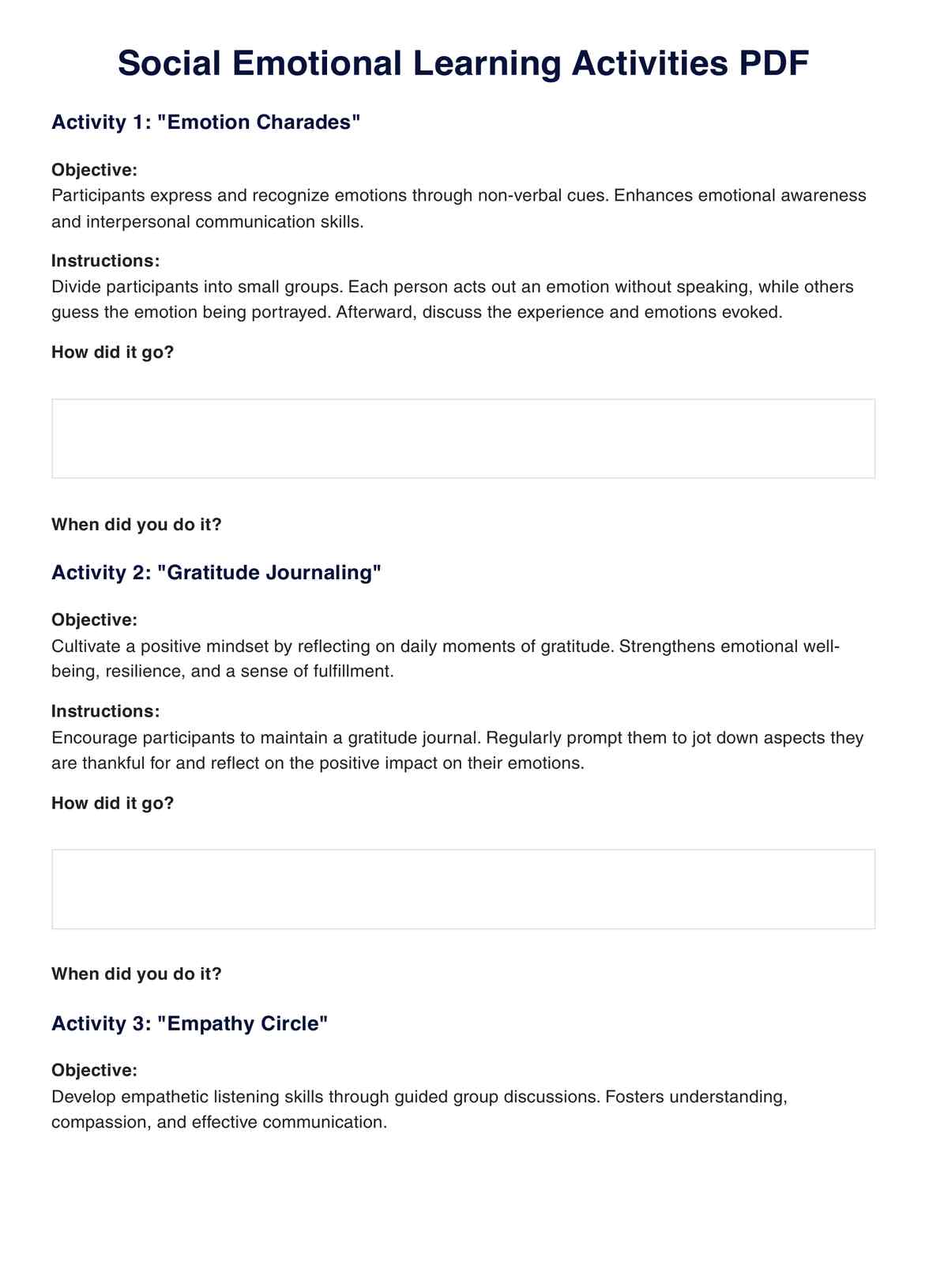
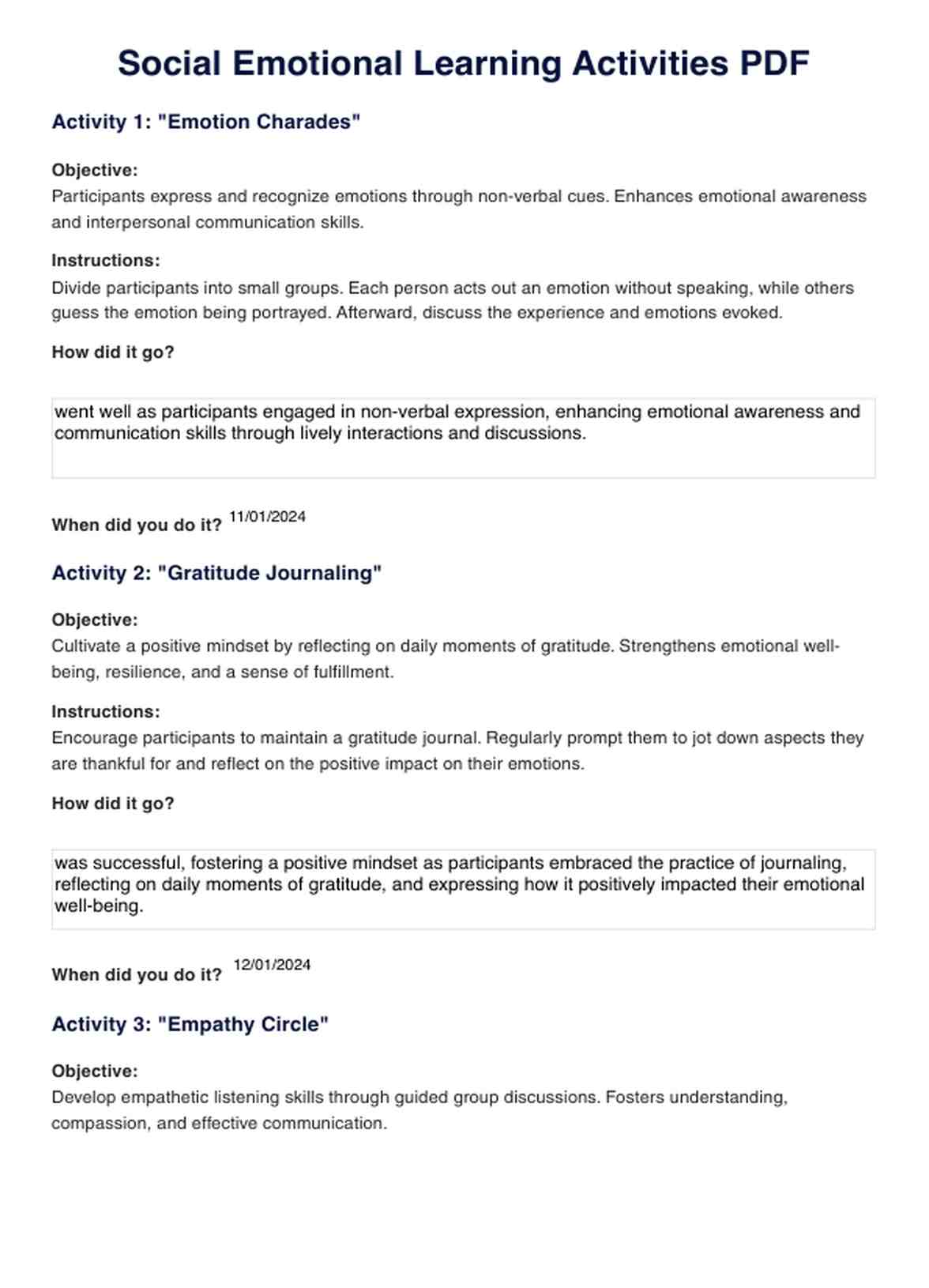
















-template.jpg)





















































































